Mark Amery – 24 June, 2011
The exhibition feels more a response by Jenkinson to Thomson than the other way round. The Jenkinson works are uneven in quality but present yet more new approaches by her to collage and digitally altered photography. ‘Penjing, I', a garden-made Bonsai in a dish, feels like a simple but effective response to threads through Thomson's work.
Wellington
Elizabeth Thomson and Megan Jenkinson
The Mystic Garden
2 June - 2 July 2011
A strong, interesting pairing this: Elizabeth Thomson and Megan Jenkinson. This isn’t the finest set of works by either artist, but the way they talk to each other makes for a strong exhibition.
Both have an enduring, intent interest in the symbolism and cultural frameworks around the botanical, and micro/ macro issues of scale. Human history has been bound by the way we measure and interpret our lives based on our readings of both the cosmos and nature, ensuring artists give our environment a glaze of mysticism with their gaze.
Dealer Mark Hutchins (always as curator to be relied upon to think richly about the relationships between the artists and work in his stable) encapsulates this in the title for this exhibition, The Mystic Garden. It highlights the absorptive, meditative nature of the work for the viewer. Painters Gretchen Albrecht, Tony Lane and Geoff Thornley (the latter was paired with Thomson in 2009) are also in Hutchins stable, and at this gallery there is often a sense of the spiritual divine in work exhibited - art as a meditative universal icon to live with and by. While Thomson and Jenkinson may not be painters, this is work that shifts and glows. You need to allow time looking to soak it all up.
With similar lengths of practice, these two artists are also marked by their continued adventurous pushing of technologies and materials to encourage new ways of looking and appreciating beauty. As viewer you can always expect to be challenged as to your perspective and position on what you are looking at.
Notable is Jenkinson’s concertina-ed long photographic work, Light Falls - Concertina. With the folds the work reads differently whether you read it from the left or from the right in terms of the subtle light changes through, behind and over the plant material depicted at a close range. Initially the work seemed just rather nifty, like a clever gimmick. Yet the play with light between foreground and background and through material is so rich, and the subject matter of chrysalis and spiky translucent pods of the swan plant in various stages of flowering so emblematic of life literally unfolding, that the work completely won me over.
Elsewhere there is in the movement and light of some of Jenkinson’s digitally altered photographs the sense - as in some of Thomson’s sculptural work - of life bubbling up as blooms from the primordial waters. Her play with light, line and reflection in collage is exquisite in the pair Uncertain Symmetries. Nature is subtly grafted together into new layered and cultivated combinations, to explore (again as in Thomson’s work) with a call out to the human psyche the boundary between a wild natural and decorative cultural order of things.
The exhibition feels more a response by Jenkinson to Thomson than the other way round. The Jenkinson works are uneven in quality but present yet more new approaches by her to collage and digitally altered photography. Penjing, I, a garden made Bonsai in a dish (note the delicate flock of flying birds above, like a musical flourish), feels like a simple but effective response to threads through Thomson’s work.
Thomson’s work, by comparison, feels far more a continuation of work over recent years. There is one of what John Hurrell in 2009 described as the “sparkling fluoro, overly complicated, glass ‘mini-mattress’ relief sculptures”, though now inspired by green and orange microbe forms from what the title seems to indicate is Raoul Island. I share John’s concern about over-complication here. They feel complicated rather than complex. With these types of Thomson works I can never get over the oddness of the relationship between the glass stem elements and the printed undulating surface they stick out of.
Greg O’Brien has written of the deliberate ‘difficult beauty’ of Thomson’s work, and it’s something I often enjoy in her rich adventurous play between natural and cultural forms and materials in her cushion-like works (a terrific example is Lady North Star Parterre on show at City Gallery until 24 July). But sometimes I find they are either just too plain difficult or plain beautiful. I sense, like Jenkinson she’s an artist that people have a very different view of depending on the work presented.
Plain beautiful for me here is the uniformly printed Tonight in the Mystic Garden. Its detailed decorative surface (evocative of the constellations, glowworms and a Van Morrison night garden “all misty wet with rain”) seen physically (rather than in reproduction) is uninvolving, cool and - rather ironically - flat. More successful in this vein is the large three part A Night, a Day and a Night seen in the City Gallery Thomson survey back in 2006.
Far more immersive and absorbing because of their play with colour and light on the surface and in depths beneath are the glimmering and glowering round button shaped Lake and Caldera. With their sophisticated use of different coloured glass spheres and resin these operate like pools. Swimming microbial clustered blushes provide a dense and fluid mercurial skin, beneath tough reptilian shimmering surfaces. The changing mood of these works depending on your position is in interesting conversation with Jenkinson’s previous lenticular pieces, with their illusions of depth and change.
Mark Amery
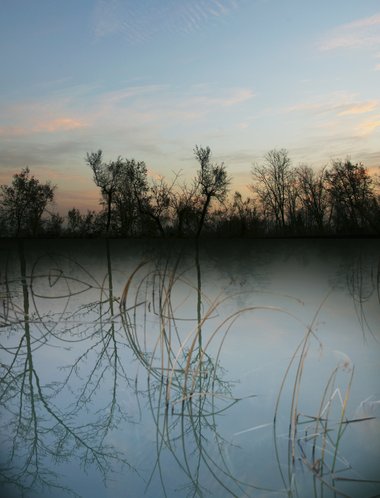
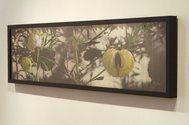
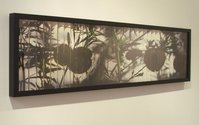
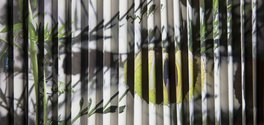
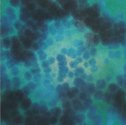
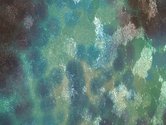
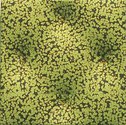
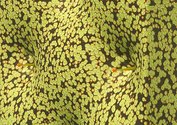
 Two Rooms presents a program of residencies and projects
Two Rooms presents a program of residencies and projects Advertising in this column
Advertising in this column
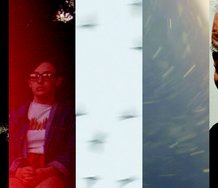
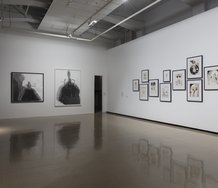
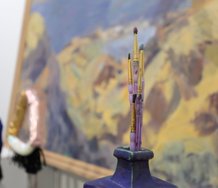
This Discussion has 0 comments.
Comment
Participate
Register to Participate.
Sign in
Sign in to an existing account.